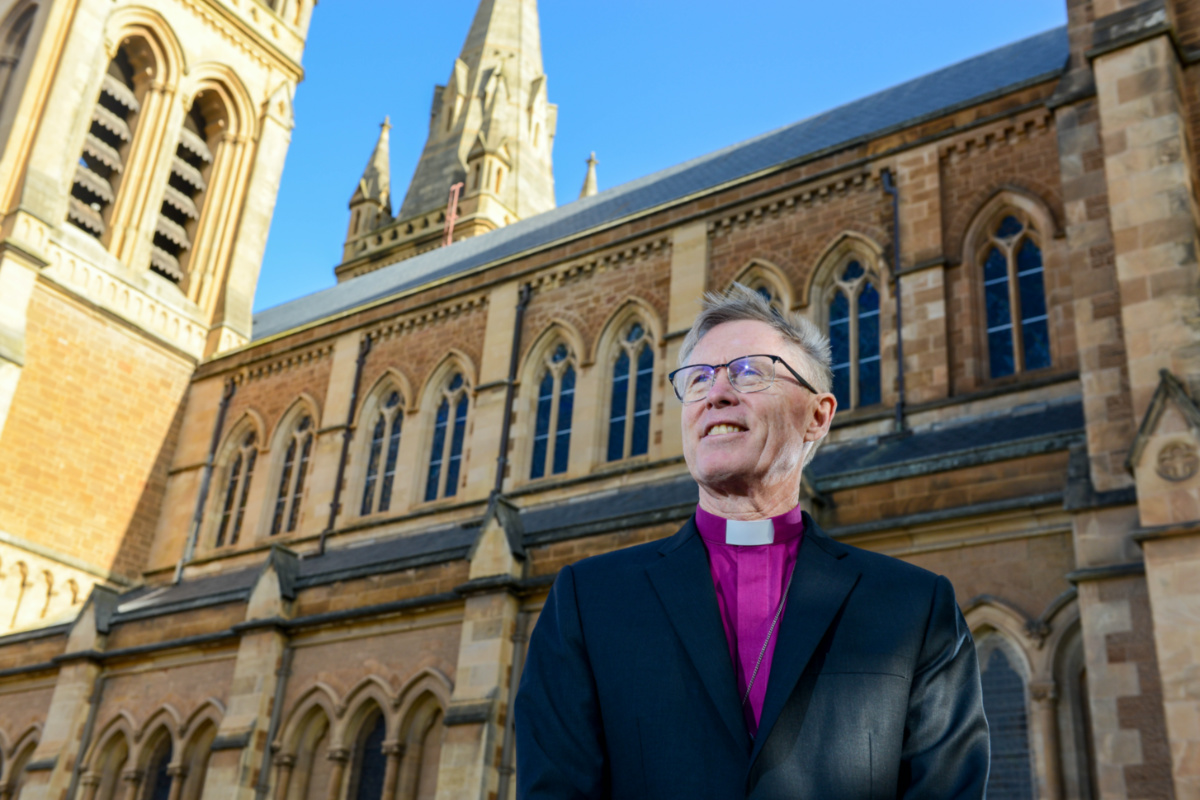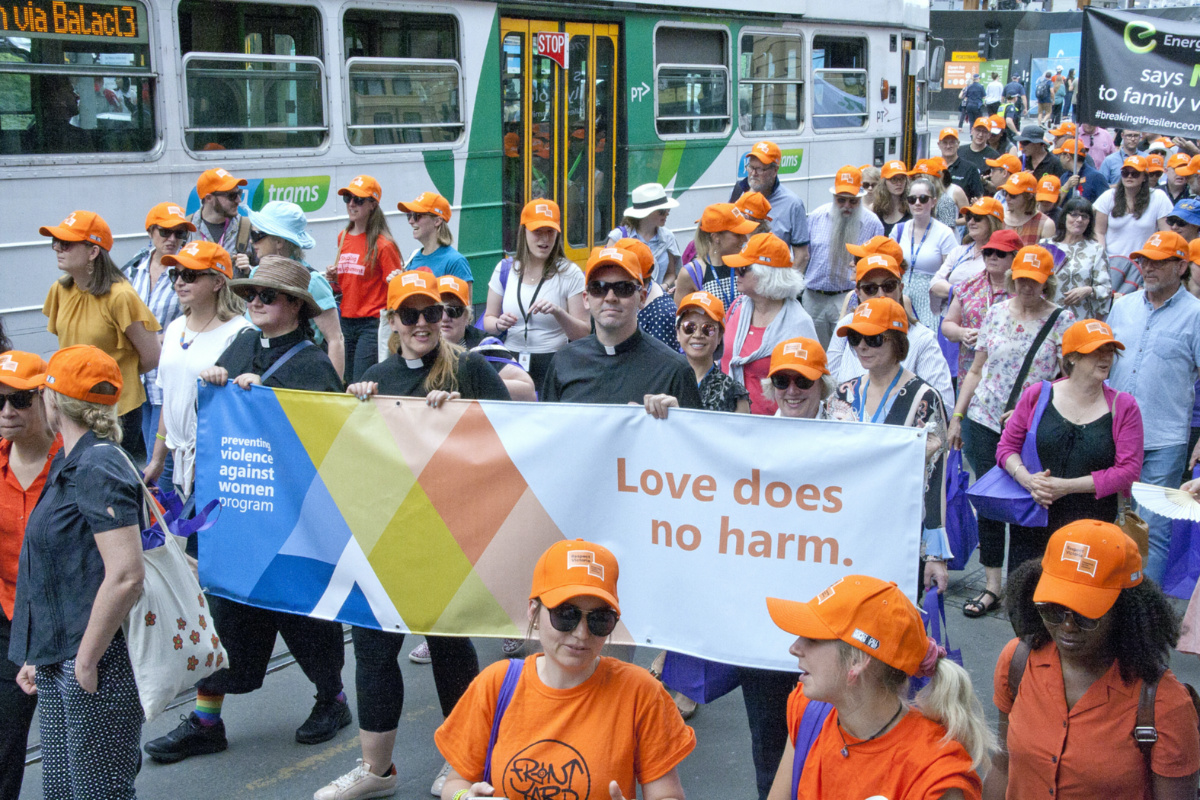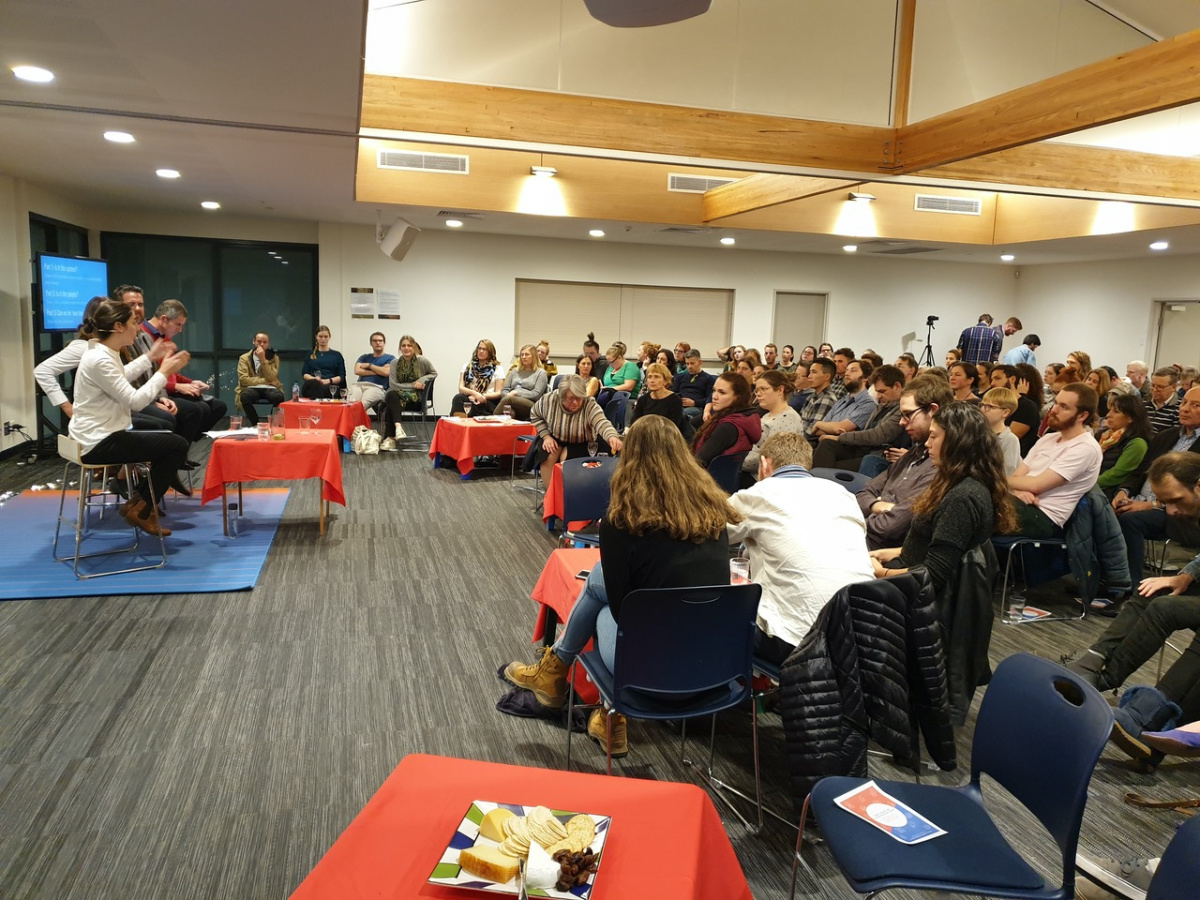Sydney, Australia
Initiatives to tackle and end domestic violence within Australia’s Anglican Church have been implemented across the nation, even as a national survey revealed the incidence of intimate partner violence within the church was equal to or higher than the general population.
It is widely reported that on average in Australia, one woman each week is murdered by a current or former intimate partner.
The National Anglican Family Violence Research Report, published earlier this month, found that faith and church “both assist and hinder” those who experience domestic violence, and most victims within the church did not seek help from their place of worship.
As well, it revealed Christian teachings “sometimes contribute to and potentially amplify” the incidence and that most clergy believed that Scripture is misused by the abuser in Christian families.

Archbishop Geoffrey Smith, Anglican Primate of Australia. PICTURE: Courtesy of the Anglican Church
In response to the findings Anglican Primate, the Most Reverend Geoffrey Smith, told Sight it was a tragedy that some people used Biblical teaching to justify their abuse.
“It is both tragic and unsurprising that perpetrators would take some statements made in the Bible and try to twist their meaning to manipulate others,” Archbishop Smith said.
“A number of dioceses have already developed prevention programs, and introduced training for ministers and pastoral care workers.”
The church has developed the Ten Commitments program, a “template for prevention and response” to domestic and family violence within its ranks that focuses on cultural change, education, training and support.
“Recommendations will be brought to the 18th General Synod of the Church in 2022 for a costed national approach that can benefit all 23 dioceses,” Archbishop Smith said.
In the Melbourne diocese, its Preventing Violence Against Women program was initiated in April, 2018, to change culture and assist victims by helping clergy and lay-people identify and act on the incidence of domestic and intimate partner violence (IPV).
PVAW program manager Robyn Boosey says training across 84 of about 200 parishes has occurred, while five parishes have undergone more in-depth adoption with a view to recognising the cultural change needed to counter the incidence of IPV.
Those parishes have specifically worked to build relationships with local support services, preached against IPV, published messages in church newsletters and put up posters.
Ms Boosey said the Diocese was working towards building a solid base of education before integrating the teaching into parish protocol.
“Now that we have tested the training and know that it works, we can start integrating it,” she said.

Melbourne Anglican priests taking part in the annual Walk Against Family Violence. PICTURE: Courtesy of the Anglican Church.
Other programs exist across Australia for pre-marriage counselling, while Sydney’s Christ Church Inner West community has hosted public and church-only men’s discussion groups on ‘Toxic masculinity’ and ‘Godly masculinity’.
CCIW’s Senior Minister Andrew Katay said while there were no real ‘startling’ insights from the two evenings, such as the existence of entitlement or the influence of pornography, they also recognised that “the whole idea of masculinity can be difficult to tie down”.
“We mainly focused on solutions – thicker community amongst men to hold each other accountable, deeper and broader understanding of masculinity, etc,” he said.
On a wider scale, the Sydney Synod also moved in 2018 to adopt The Domestic Abuse Policy and Guidelines, which provide an overview for clergy to acknowledge victims and offer ways to support them, as well as preaching that domestic violence is a sin.
The policy followed the Royal Commission into Family Violence report in 2016 that ‘faith communities’ played an important role in influencing attitudes and offering leadership on family violence.
The programs may be active, but the NAFVR revealed victims and survivors of IPV within the church want Christian teaching on marriage and gender that addresses the potential for and reality of abuse in intimate relationships.
They also called for acknowledgement of the incidence of abuse, a range of information to be openly displayed in churches, access to specialist domestic violence support services such as counselling and legal aid, programs to inform and counter the prevalence of IPV and practical help, such as housing and food, if they separate from their partners.
Victims told the NAFVR that the ‘hidden nature of IPV in churches adds to shame and disconnection’ and they called for visible IPV resources (such as pamphlets) in church, as well as training for clergy, to help educate the parish community about the signs of abuse and let victim-survivors know how and where to get support.
Various methods should be used to ‘inform and empower’, including sermons, seminars, pre-marriage preparation courses and ‘regular’ direct conversations.
“Clergy, lay leaders and congregations should be provided with IPV training, and pastoral workers should be provided, to work with perpetrators and address their behaviours, informed by victim-survivor input,” the report said.

A discussion on ‘toxic masculinity’ at Christ Church Inner West in Ashfield, Sydney in June, 2019. Panel members included author, social commentator and women’s advocate Melinda Tankard Reist, Tim Bowden, headmaster at Trinity Grammar School and Andrew Katay, senior minister at Christ Church Inner West. PICTURE: Courtesy of Christ Church Inner West
As well, churches should “develop and make widely available easy to access pamphlets and booklets on IPV in a Christian context as well as offering Christian teaching on marriage and gender that addresses the potential for and reality of abuse in intimate relationships”.
Some of those resources were already available within the Sydney Diocese, according to Archdeacon Kara Hartley, speaking on behalf of the Sydney Anglican Domestic Violence Task Force.
Archdeacon Hartley said in a statement that materials and training had been developed to highlight that all forms of domestic abuse “are wrong and not tolerated in our church”.
“We’ve also taken seriously the fact that domestic violence has occurred in some clergy households and have established a fund to care for clergy spouses,” she said.
The church has also developed the ‘Before it Starts’ campaign through its Anglicare and Youthworks programs, which educates people in a Biblical context about respectful relationships with the aim of achieving change in the incidence of domestic violence and sexual abuse.
For further support and information in Australia, call 1800 RESPECT – a 24 hour national sexual assault, family and domestic counselling line – or for anyone who is experiencing a personal crisis or thinking about suicide, call Lifeline on 131114.





